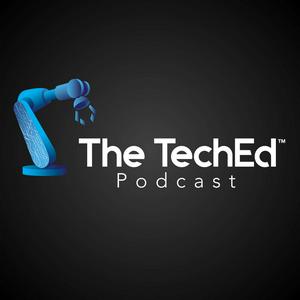Your organization doesn’t have a data problem. It has an intelligence problem: the gap between having information and being able to act on it with speed, clarity, and confidence. That gap shows up everywhere: hospitals, schools, manufacturers, and any team drowning in dashboards while leaders still wait on someone to “find the story.”
Rick Anderson (Chairman & CEO, The Hive Health) is back to show just how much AI has impacted one organization in 12 months. Enter Corby Furrer (Harvard AI fellow, builder since college) and Will Furrer (former NFL quarterback turned COO). Together, they've built what they call a "trade intelligence platform" - not another analytics tool, but a system that encodes economic expectations, reconciles them against purchasing reality in real-time, and tells people exactly what action to take when behavior drifts off course.
Intelligence isn't about regression models anymore. It's about knowing what "good looks like," verifying AI assumptions through human-in-the-loop, and translating observations into stories that change behavior when delivered by the people who speak the right language (physician to physician, engineer to engineer, teacher to teacher, not consultant to administrator). Sustainable change requires three legs: understanding the rules of the game, seeing what's actually happening (not what's supposed to happen), and coaching insights through stakeholders who can shift behavior.
AI scales when it creates shared clarity people can validate and act on repeatedly, not when it generates reports that collect dust behind the CEO's desk.
In this episode:
Why your organization can have endless dashboards and still lack decision-grade intelligence.
What must be true for leaders to trust AI results enough to act on them.
How a data observation becomes a story for the change agent that actually drives behavior change.
How coding and product building changes when AI can generate code, and why knowing “what good looks like” matters.
Why one-time improvements fade, and what it takes to build a repeatable system.
3 Big Takeaways from this Episode:
1. Decision-grade intelligence starts with clear expectations and a next action. The bridge from data to intelligence = what should happen, reconciling it against what is happening, and using that gap to drive the next corrective step. The takeaway is widely applicable: if you cannot state the intended economic or operational outcome, you cannot reliably diagnose variance or drive consistent performance.
2. If the improvement is not repeatable, it is not a solution. Build a system that codifies the work, monitors performance against targets, and keeps savings from reverting once the project ends. The real value in AI projects is durable behavior change and ongoing detection of the next opportunity, not a one-time finding.
3. Insights only matter when they are delivered to the change agent as a story that drives action. A data observation has to become a narrative that the person who can change the behavior will actually respond to. In the AI era, that elevates a specific skill stack: storytelling, curiosity, and building, because trust and adoption live or die in communication and execution, not in the existence of a model.
Links & resources
We want to hear from you! Send us a text.
Instagram - Facebook - YouTube - TikTok - Twitter - LinkedIn


